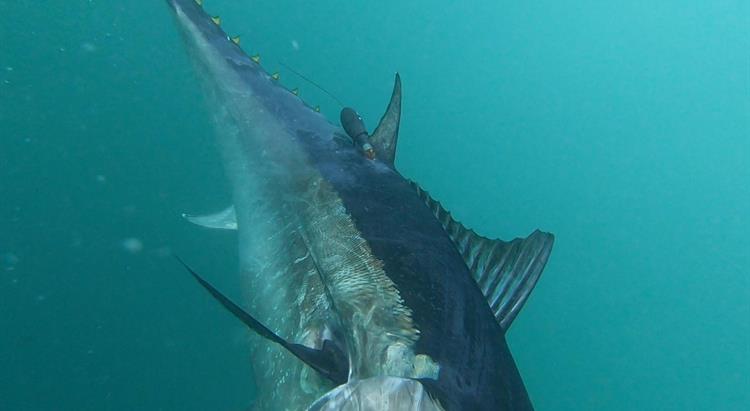05 December 2022

A project to understand the movement and behaviour of bluefin tuna in Jersey continues for a
second year running.
A further seven bluefin tuna have successfully been tagged by Marine Resources using state of the
art satellite tags which will be on the fish for one or two years, until the tag automatically detaches.
When the final tag detaches, Marine Resources will have a sample size of 14 fish.
Four of the seven tags deployed in 2021 have now been collected by Marine Resources and
analysed by the University of Exeter.
The data shows:
- Bluefin tuna are using Jersey waters for feeding but are also spending a lot of time on the
south coast of the UK and surrounding Channel Islands waters
- The fish are arriving from further south, some from the Bay of Biscay and some as far as the
Mediterranean spawning grounds
- Not all fish are spawning – some are juveniles whereas others are sexually mature and are
returning to known spawning grounds in the winter
- Two bluefin tuna tagged in 2021 returned to Channel Island waters in 2022 with the tags
being retrieved by Marine Resources and local commercial fishers
Some of the fish tagged last year were caught before the tags detached, showing the catchability
and vulnerability of this species. Bluefin tuna are a protected species under the new Wildlife Law,
and it is prohibited to target or land these fish within Jersey territorial waters.
Alex Plaster, Marine Science and Research Officer, said: “It’s great to work collaboratively with the
team from the University of Exeter and Fishing Jersey for a second year running. Two of the tags we
deployed last year popped off within reach for us to go and collect them - one was 70 miles west
of Jersey and the other just west of Les Minquiers.
“These fish are travelling incredible distances and with this satellite data we can calculate the
migration route of the animal. The Norman le Brocq collected one of these using tracking
equipment and we also had two volunteers from the Jersey fishing fleet who collected the other
tag.
“The data we receive from the satellite tags tells us crucial information to manage this resource
such as how long they are in our waters for and what they are doing here. We have found out
some of these fish are travelling as far as Turkey and three of the fish tagged in 2021 were caught
within 12 months in the English Channel, Bay of Biscay and Mediterranean. Marine Resources will
be publishing a report on the findings next year.”